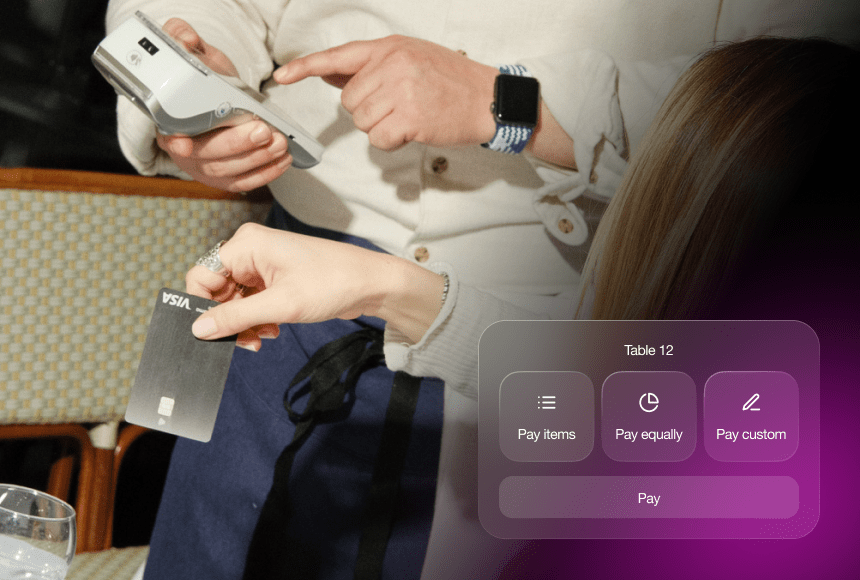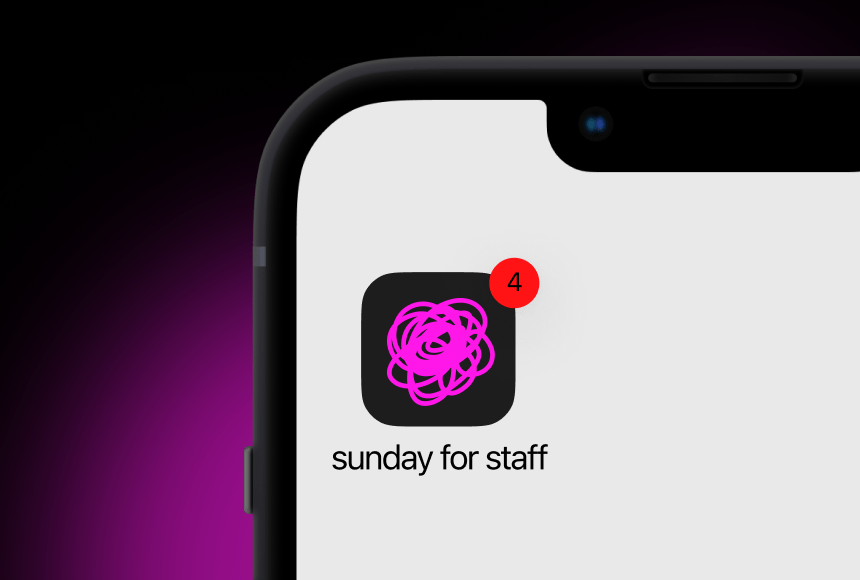
Practical Management Strategies to Boost Restaurant Revenue
Understanding the Link Between Management and Sales
When was the last time you walked into a restaurant and immediately felt the buzz of a cohesive, motivated team? It’s not just about greeting guests with a smile or ensuring orders come out correctly—though those details matter. True restaurant success hinges on how well you manage your people, from the kitchen brigade to the front-of-house staff. The result: higher sales, happier customers, and a real sense of pride among your team.
According to UKHospitality, the hospitality sector employs millions in the UK. Yet, many restaurants struggle with low staff morale, high turnover, and operational inefficiencies. When your employees feel undervalued or disorganised, it shows in everything they do—from the way they up-sell specials to the speed at which they bring out the next round of drinks. Effective management acts as the backbone for a restaurant that’s not just surviving but thriving.
Let’s explore how better management translates directly into increased sales, plus actionable tips you can put into practice right away.
1. Align Everyone with Clear Goals
You can’t expect your team to drive sales if no one knows where they’re headed. Start by setting clear, measurable objectives. If you’re aiming to increase average spend by 10% in six months, share that figure with your staff. Transparency helps them see how their day-to-day actions—whether it’s smart upselling or consistent service—can push the restaurant toward that milestone.
- Define KPIs: Identify which key performance indicators actually matter. It could be average order value, table turnover time, or online reviews.
- Track Progress: Keep a visible scoreboard. For instance, place a small whiteboard in the staff room showing daily sales against targets.
- Celebrate Mini-Victories: Once your team hits a weekly or monthly goal, give them a shoutout before service or treat them to a modest staff meal after closing time.
Clarity on both short-term and long-term targets ignites motivation. When your team knows what the endgame looks like, they’ll focus on the actions that truly affect the bottom line.
2. Foster a Positive Team Culture
A vibrant culture doesn’t just keep employees happy—it directly impacts your restaurant’s sales. Think of a restaurant as a stage: the more unified your cast, the better the show. Diners pick up on this atmosphere the moment they walk through the door. A disjointed team that struggles with communication will miss opportunities to upsell, make more mistakes, and deter repeat business.
- Encourage Open Communication: Host quick team huddles before the busiest service. Discuss any menu changes, special promotions, or typical guest concerns. This fosters camaraderie and reduces mix-ups on the floor.
- Promote Inclusivity: Everyone’s voice matters, from your veteran chefs to your part-time weekend servers. When staff feel valued, they’re more invested in pushing sales forward.
- Resolve Conflicts Quickly: Nothing derails sales faster than ongoing tension between team members. Address issues head-on with private, respectful conversations.
Customers want more than just good food; they crave an enjoyable experience. When your staff shares a positive culture, that energy radiates into every plate, every greeting, and every table interaction—leading to better reviews and, ultimately, higher profits.
3. Train Your Staff to Upsell Naturally
Upselling doesn’t have to be pushy or awkward. Instead, it can feel like personalised guidance. If you want to boost sales, teach your servers how to recommend the perfect wine pairing or suggest a dessert that complements the main dish. According to research from the British Hospitality Association (now part of UKHospitality), small upselling techniques can significantly lift average spend per table when done with sincerity and knowledge.
How to encourage effective upselling:
- Menu Familiarity: Make sure the entire team has tasted new dishes or cocktails. It’s much easier to recommend something genuinely if they’ve experienced it first-hand.
- Pairing Suggestions: If someone orders a spicy pasta, servers should be ready with a recommended beverage or side that enhances the dish. Knowledgeable suggestions build trust and encourage a higher spend.
- Train on Body Language and Tone: Customers respond better to a friendly, low-pressure approach. Teach staff to pick up on cues—if a table seems interested in experimenting, a few well-placed suggestions can go a long way.
Empowering your team to upsell in a natural, helpful way not only raises your revenue but also elevates the overall dining experience.
4. Leverage Technology for Better Efficiency
Managing teams effectively also means cutting out unnecessary stress. Repetitive tasks and payment bottlenecks can slow down even the most efficient operation. That’s where modern tech solutions step in to streamline your workflow.
- Adopt a Unified POS: If your ordering system is all over the place, it leads to confusion, delays, and missed sales opportunities. A single platform that connects orders, inventory, and analytics helps staff stay on the same page.
- Embrace Faster Payments: Solutions like sunday let customers settle their bills with QR codes right at the table. This frees your servers from being tied to the card machine, giving them more time to interact with guests and upsell dessert or after-dinner drinks.
- Track Tips and Reviews: sunday also makes it convenient for customers to leave a tip or a quick Google review. Positive feedback can boost your online reputation, which in turn drives more footfall.
Technology doesn’t replace the warmth of personal interaction, but it does remove the friction that can distract staff from building genuine rapport with customers. When your team can focus on service and sales, everyone wins.
5. Offer Incentives and Rewards
Motivating a restaurant team can be like juggling plates during a dinner rush—you need the right balance to keep morale high without causing burnout. One powerful approach is to introduce well-thought-out incentives that encourage staff to go above and beyond, boosting both their earnings and the restaurant’s top line.
What works:
- Sales-Based Bonuses: If your staff hits or exceeds a certain revenue threshold, reward them. This can be a cash bonus, gift vouchers, or a team night out.
- Leaderboard Competitions: Friendly rivalry can spark creativity. Track who sells the most specials or generates the highest average bill. A small prize at the end of the month can energise the entire team.
- Recognition Programs: Everyone loves to be acknowledged. A simple “Employee of the Week” or staff shoutout on a notice board can do wonders for motivation.
Incentives should be fair, transparent, and achievable. This way, your team stays motivated without feeling undue pressure—ultimately elevating the entire guest experience.
6. Create a Structured Feedback Loop
Top-down directives can feel stifling if employees never get a chance to weigh in. Implementing a regular feedback loop opens the door to new ideas, fosters trust, and helps you adapt quickly when the market shifts or a new competitor opens next door.
Consider these approaches:
- One-on-One Check-Ins: Catch up with each team member briefly once a month. Ask about their challenges, ideas, and career aspirations.
- Team Huddles: Before or after a busy service, gather for a short debrief. What went well? What could be improved?
- Anonymous Surveys: Not everyone feels comfortable speaking up in a group. A quick digital or paper survey allows more reserved staff to share honest opinions.
When your team sees that management genuinely listens and acts on feedback, they develop a stronger sense of ownership and responsibility. This reflects in how they treat customers, handle conflict, and push sales.
7. Focus on Training and Professional Growth
Invest in your staff’s development, and they’ll invest in your restaurant’s success. A well-trained, knowledgeable team is better equipped to build rapport with guests, upsell effectively, and resolve issues smoothly.
Practical tips to enhance training:
- Onboarding Programmes: For new hires, create a structured roadmap. Cover everything from menu knowledge to your brand values.
- Cross-Training: Let servers understand the basics of kitchen operations, and encourage chefs to see the front-of-house perspective. This broadens empathy and streamlines communication.
- Career Paths: Show ambitious employees how they can evolve—perhaps from a server to a head server, then eventually into management. Clear progression motivates them to stick around and perform at a high level.
Employees who feel stagnant tend to disengage, leading to lost sales and higher turnover. Ongoing training and skill-building ensure they remain enthusiastic, confident, and ready to boost your bottom line.
8. Optimise Staff Scheduling for Better Service
A big part of strong management is ensuring the right people are in the right place at the right time. Nothing kills sales momentum like being understaffed on a busy Friday night, or overstaffed on a slow Tuesday lunch.
Here’s how to refine your scheduling:
- Forecast Demand: Keep track of historical sales data for each day of the week, factoring in local events, holidays, or weather patterns.
- Use Digital Tools: Rely on scheduling apps that help you quickly add or remove staff based on reservations or predicted footfall. This cuts down on labour costs and ensures you’re fully prepared for rush hours.
- Offer Flexibility: If your staff can easily swap shifts, they’ll be happier—and that means more attentive service.
Effective scheduling keeps your team energized rather than burned out. When employees aren’t spread too thin, they can engage more thoroughly with customers and improve sales outcomes.
9. Promote an Ownership Mindset
If your team feels like mere cogs in a machine, enthusiasm dips quickly. Cultivating an ownership mindset changes the game. When servers and chefs see themselves as integral to the restaurant’s success, they’ll naturally look for ways to improve service and generate more revenue.
- Share Insights: Let staff know the restaurant’s financial health, daily goals, and any emerging trends. A transparent approach fosters collective accountability.
- Delegate Responsibility: Encourage seasoned employees to train newcomers or lead mini-projects. When they have a stake in outcomes, they become more engaged.
- Value Ideas: If a bartender suggests a new cocktail promotion that sells out every evening, give them public credit. Recognition fuels innovation.
A sense of ownership transforms routine tasks into purposeful actions. Whether it’s noticing that a table might appreciate a dessert suggestion, or realising the bar area could use a new layout for faster service, empowered staff become your best asset in driving sales.
10. Continuously Adapt and Evolve
Restaurant trends change at lightning speed. What worked one year might not resonate the next, whether it’s your menu offerings or the way you engage your staff. Successful managers know that stagnation isn’t an option. Keep experimenting, keep learning, and stay in tune with both your customers and your employees.
Explore fresh approaches:
- Seasonal Menu Updates: Rotate dishes to match local produce availability or emerging dietary trends. Involving staff in taste tests can spark their excitement—and make them better ambassadors for the new items.
- Marketing Boost: Train your servers on how to talk about limited-time offers or community events. If they’re informed, they’ll spread the word effortlessly.
- Technology Upgrades: Stay open to new tools. For instance, if contactless payments are rising among your audience, integrating a quick-pay QR feature—like sunday—could shorten wait times and enhance sales.
By staying dynamic, you encourage your team to be agile, proactive, and eager to participate in the restaurant’s ongoing success.
A Glimpse into a Prosperous Future
Managing your teams effectively isn’t just about meeting sales targets this quarter—it’s about building a sustainable culture that keeps guests coming back for more. When employees feel guided, motivated, and properly equipped, their enthusiasm will shine through every interaction. Diners will notice the difference in how quickly they’re seated, how confidently specials are described, and how seamlessly they can pay using a smart terminal or by scanning a QR code at the table.
Better management strategies resonate far beyond your bottom line. They nurture a work environment where talent stays, creativity flourishes, and customers leave glowing reviews. As you strengthen your leadership style, consider weaving in modern solutions like sunday to simplify payments, increase tips, and free your team to focus on delighting diners. Each of these steps, big or small, works in harmony to boost sales while keeping morale high.
Ultimately, a restaurant that puts people first—both employees and customers—lays the groundwork for long-lasting success. The goal isn’t just to increase revenue; it’s to elevate every aspect of your establishment. With the right management techniques, supportive culture, and a dash of innovation, you’ll be well on your way to a prosperous future where everyone wins.
Find out more today
Drop us your details below and we’ll reach out within the next 24
Get the full, detailed picture.
sunday elevates your business with insightful data, instant feedback and precise analytics.




